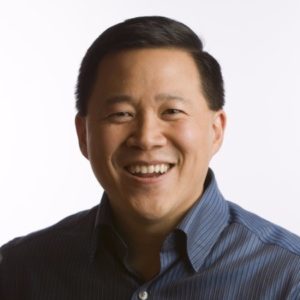Seed Capital
AI Investor Forum: Gus Tai on AI in Education (Part 3)
Sramana Mitra: There is one other vector we need to consider in this – the human centric element. The history of education is that the human provides all the content. For a rural India teacher to teach English as a second language, he or she has to know English as a second language from that particular vernacular in the region first. But in this model, we are eliminating that requirement. Or are we eliminating that requirement? Does the teacher need to not know, know? What is the role of the teacher in this?
>>>AI Investor Forum: Gus Tai on AI in Education (Part 2)
Sramana Mitra: I want to double click on English as a second language. In March last year, we were in India, and my father took us to see a school in rural West Bengal, quite far from Calcutta, which is the main metropolis in that region. These rural Indian towns and villages are not places where fluent English as a second language is that common. We were blown away by these ninth grade kids who were giving us tours of their labs and their learning process, and they were so enthusiastic, and the whole thing was in fluent English.
>>>AI Investor Forum: Gus Tai on AI in Education (Part 1)

Gus Tai, Investor, Board Member and Retired General Partner at Trinity Ventures, discusses ideas and opportunities in Education with an AI-augmented framework.
>>>1Mby1M Virtual Accelerator AI Investor Forum: With Mo Islam, Partner at Threshold Ventures (Part 5)
Sramana Mitra: What have you been up to in the field of medical imaging? What are you learning? What insights can we convey here?
>>>1Mby1M Virtual Accelerator AI Investor Forum: With Mo Islam, Partner at Threshold Ventures (Part 4)
Sramana Mitra: What is the situation vis-a-vis startup biotech companies that want to use a platform like Atomwise? Is Atomwise seeing startup biotech companies build on their platform?
>>>1Mby1M Virtual Accelerator AI Investor Forum: With Mo Islam, Partner at Threshold Ventures (Part 3)
Sramana Mitra: Could you talk a little bit about the financing journey of a company that has a 10-15 year lifecycle?
>>>1Mby1M Virtual Accelerator AI Investor Forum: With Mo Islam, Partner at Threshold Ventures (Part 1)

Mo Islam, Partner at Threshold Ventures. discusses his firm’s AI investment thesis. We had an excellent discussion on AI-enabled drug discovery, AI-enabled medical imaging, etc.
>>>1Mby1M Virtual Accelerator AI Investor Forum: With Krishnakumar Natarajan, Co-Founder of Mela Ventures (Part 4)
Sramana Mitra: Yes, definitely. I also want to ask you about your current strategy of investing in AI companies. It sounds like this is a team that you really liked; and you invested in that team and the concept. How often do you do that? Do you invest in concepts much?
>>>